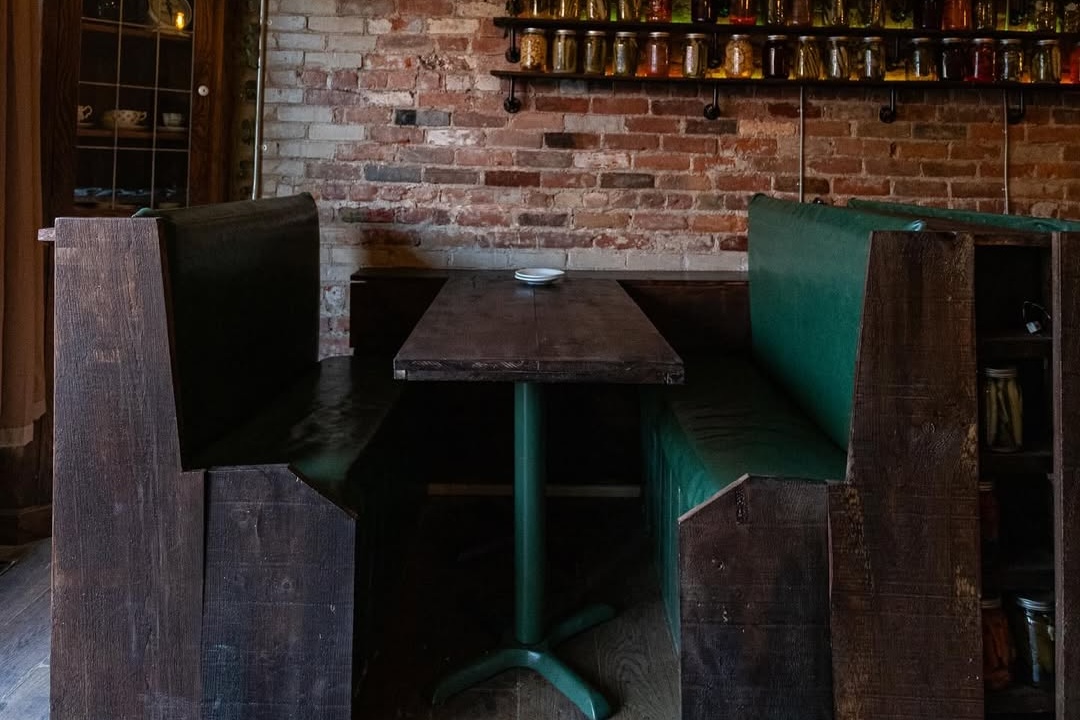Collective interview with Amy Sze (Theatre maker and arts producer, London, UK-Hong Kong), Mia Efremova/Mia Volt (playwright, Štip, R.N.Macedonia), and Tree Kwok (theatre director/dramaturg, Hong Kong, China). Interviewer Ivanka Apostolova Baskar.
Amy Sze is a theatre producer and director born and raised in Hong Kong, currently based in London and Hong Kong. Graduated with Bachelor of Arts in Cultural Management at the Chinese University of Hong Kong and more recently MA Advanced Theatre Practice at the Royal Central School of Speech and Drama, she endeavors to present stories of immigration, forgotten histories, and explore the cultural identity of Hong Kong through multidisciplinary art forms. She also focuses on international and cross-cultural collaborations.
Mia Efremova is born 1994 in North Macedonia, Štip, where she finished Primary and High School, currently works in the NI Museum for preservation of cultural heritage and monuments – Štip, is a published playwright, with more than 10 plays in English language, several early plays in Macedonian and one since 2023 in Japanese in Tokyo. For over a decade she has been mostly on the international stage. All her plays are published in electronic form and some in hard copy versions, available worldwide with main contact at home with ITI Macedonian Center. She writes in English, Macedonian, and Dutch. She has also published two books with poetic saga in Dutch language in 2016 and 2018 in Rotterdam, The Netherlands. Participated and had been part of many theater festivals, workshops, projects etc. in collaboration with crews in Kosovo, Albania, Bosnia, Japan, Hong Kong, London, Berlin etc. Her education is as Academic painter (Classical painting/UGD Štip), FAMU – Screenwriting & Producing class of 2018 Prague, Geophysical engineering – underground mining and explosives – class of 2020/2021.
Kwok Chui Yi (TREE) is a Hong Kong-based stage performer, theatre maker, and educator with extensive experience as an actor, playwright, director, and acting coach. A graduate of The Hong Kong Academy for Performing Arts, she trained under Philippe Gaulier in France and has taught at the Academy’s School of Drama. TREE is currently resident artist and drama instructor at Radix Troupe, leading projects that explore somatic performance, including her solo piece My Therapist Said: and the women-only workshop ACTRESS POWER. She has received multiple accolades, including Best Actress at the 16th Hong Kong Theatre Libre Awards for Tree @ Lone and Outstanding Actress at the 6th Hong Theatre Awards, and continues to pioneer innovative approaches to mind-body theatre practice.
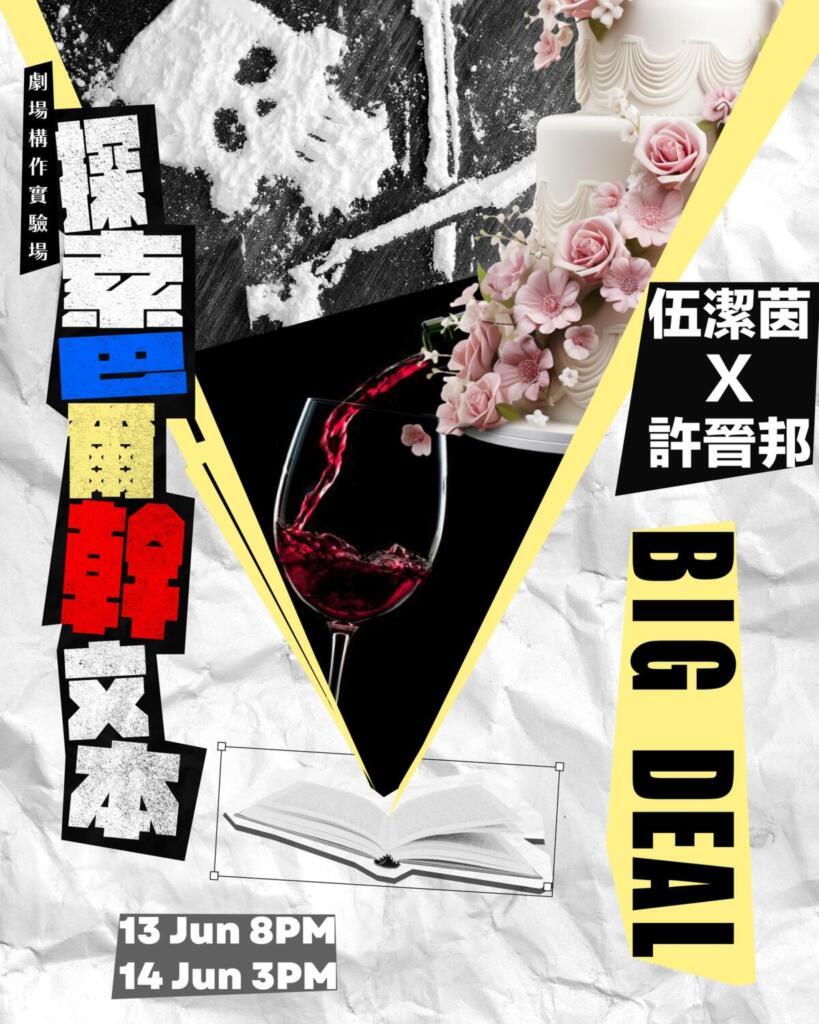
Big Deal in Hong Kong. Photo Credits: Blank Space Studio.
Ivanka Apostolova Baskar: According to what motivation did you initiate, create, staged, and participate in the project Dramaturgy Lab: Exploring West Balkan Plays?; and why playwrights from the Western Balkans?
Amy Sze: It started very coincidentally with a visit to the Kosovo showcase back in late 2023 as I was producing for a theatre play called the Flowers of Srebrenica (Legal Aliens Theatre; Sarajevo War Theatre-SARTR) and was there to build connections and meet more European producers – before that project I didn’t actually really know where the West Balkans were on the map. In the Kosovo showcase I encountered plays by Jeton Neziraj, and Ivana was part of the delegates in the program. I was impressed by the enthusiasm for theatre companies in Kosovo and other European regions to promote their work internationally, and influenced by the atmosphere of “let’s create something” throughout the showcase, I approached Jeton and asked if he would be at all interested in translating his plays into Cantonese and that was how it all started.
Blank Space Studio, the organizer of Dramaturg Lab, has been active in the past few years introducing foreign plays – especially from non anglo-speaking countries – into Hong Kong to provide another perspective of knowing the world. Previously we have done play readings from Iran, Palestine, and Ukraine, with the hope of discovering stories beyond numbers and sickening media reporting, and to find out humanities within all of us. Naturally, plays from the West Balkans are of huge interest. There is very limited understanding of the West Balkans region from Hong Kong, apart from keywords like ‘war-torn’, ‘cheap destination for Europe trips’, and ‘filming location for Game of Thrones’. We see this as a very exciting opportunity for us to collaborate with artists from across the globe.
IAB: Amy, on what criteria as a producer/manager did you choose the text Big Deal by Mia Efremova?
AS: I was looking through a list of North Macedonian plays that Ivana sent me, and I do feel like there’s a strong sense of surrealism and brutality across many plays that I read, so I was rather curious whether it is Ivana’s curatorial direction or a writing style that is popular amongst contemporary/young North Macedonian playwrights. That’s why I chose to pick up the one with the strongest emotion and pass on this challenge to the creative team – to investigate how this comes about; how it relates to the way we possibly understand the sociopolitical situation of North Macedonia. What I was interested in is not about the feasibility of the play (you technically cannot ask actors to put their head into a water tank while speaking long monologues in a playreading timeframe and structure), but how we might relate to these strong sentiments, or not.
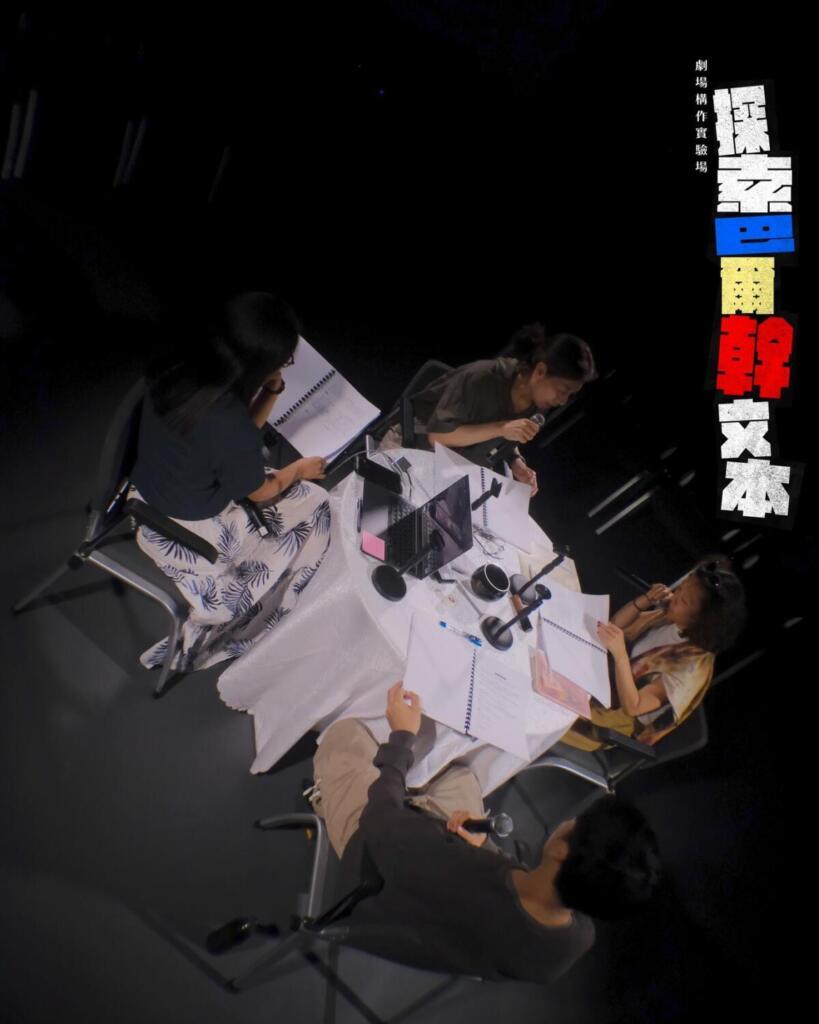

Big Deal in Hong Kong. Photo Credits: Blank Space Studio.
IAB: Amy, as team, according to what context did you select the plays of excellent playwrights/authors as Jeton Neziraj (Kosovo) and Prof. Almir Imširević (Bosnia and Herzegovina) and connect them – contextualize them in the project with the play Big Deal by Mia Efremova?
AS: Generally, my goal for the whole programme was to present various perspectives of life in the West Balkans, so diversity in the plays was one of the key elements I was thinking about. Jeton’s play (One Flew Over the Kosovo Theatre) is playful and comedic with singing elements, yet so critically points out the challenges Kosovo faces after independence; Almir’s play (Mousefuckers), on the other side, focuses on the traumatic memories that stay in people’s mind even long after the war and out of the country, where individuals were trapped in their lost youth years. With both their plays presenting very solid references of historical events, Mia’s play took on a completely different direction to interrogate the sense of lost and helplessness within younger generations, in a hope that audiences who come and see all three playreading performances can hear from different voices from different generations, regions, genders, and their struggles.
IAB: What were the challenges of translating the text from Macedonian to Cantonese Chinese language?
AS: Fortunately Mia’s play was written in English directly so there is no double translation needed. Jeton and Almir’s play were also translated into English previously so it is a language that all the creative team in Hong Kong understands. For Mia’s play particularly, it wasn’t the words or specific references that makes the translation process challenging, but the unique way of writing, the exceptionally strong emotions and non daily-life dialogue that we need to find a way in for Hong Kong audiences to relate to. Of course there is also the factor that the play is 3 hours long so that is quite some hard work from our translator/dramaturg.
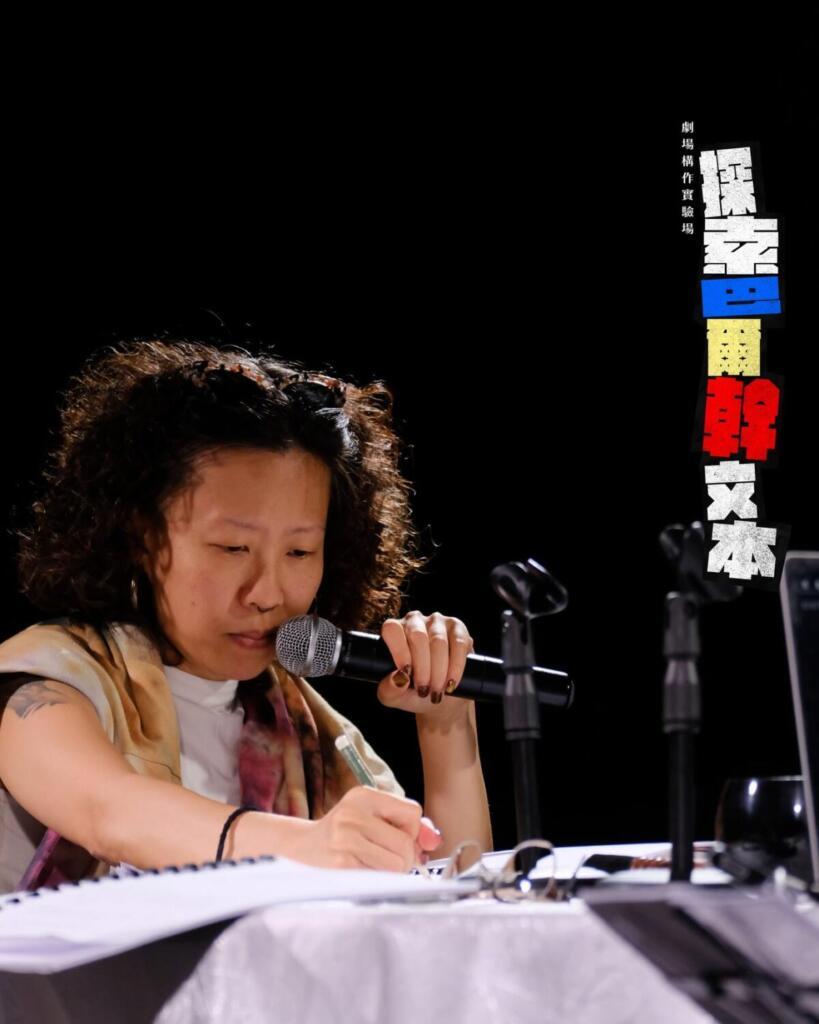

Kwok Chui Yi TREE, Photo credit: Blank Space Studio.
IAB: Tree, what were the challenges/thrills of staging/presenting the text Big Deal as a creative public dramatic reading? As a theatre director, what attracted you to this play?
Tree Kwok: Big Deal is not a script created with a traditional narrative framework. There is no preset logical connection between the lines, making it quite challenging for both actors and the audience to grasp the author’s underlying motives or intentions from the dialogue. Moreover, the author employs a lot of imagery, and within the span of a one-hour script reading, it is genuinely difficult to immerse people in its envisioned atmosphere. Nonetheless, I appreciate the bold style of this play, which has sparked extensive discussions among the creative team and the audience regarding conceptual creative freedom.
IAB: What kind of feedback did the audience in Hong Kong return regarding the characters, language, staging, and the style in the work/play of Big Deal?
AS: In the end, we presented the play in a rather conventional playreading format (without actual staging), but we read excerpts of the play to give a sense of the structure and themes, and added in discussion- and sharing sessions in between each scene excerpt to share with the audience our visit to North Macedonia in May 2025, our conversation with Mia and Ivana, and, as artists, how the creative team sees the play. It does require the audience to think and reflect, and to join in the conversation of how they think this play could be staged. So it was actually a unique experience where we could afford the space to experiment rather than forcing a full outcome. Some audiences shared that they can resonate to the powerlessness presented in the play, which is a shared emotion amongst young generations in many countries around the world. Some felt like the play could be a music video or animated film that could help realise some of the physically impossible stage directions in the text, which we think were interesting discoveries.
TK: The audience greatly appreciated the approach of this script reading: the insertion of introductions to North Macedonia, reflections on traveling through North Macedonia, and sharing the process of meeting the author, Mia, within the selected excerpts. This provided the audience with an entry point to experience the author’s words and her world. Most of the audience found the script confusing and disorienting. Without being able to grasp the narrative framework, they felt resistant to the highly emotional expressions, which consequently made them curious about the team’s motivation for selecting this script for study.
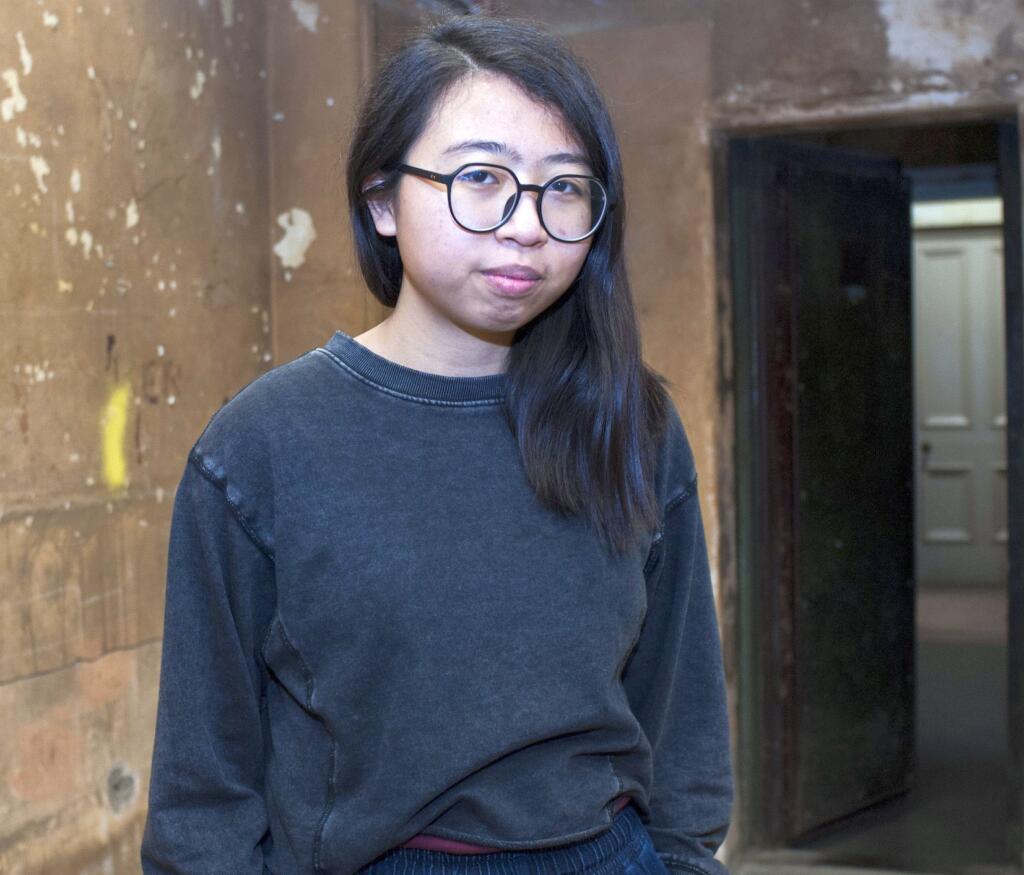

Amy Sze. Photo credit: Jalaikon Caro Gervay.
IAB: Why Hong Kong? What is the independent theater scene like there, compared to city institutional or mainstream theater? What kind of people create and build the independent scene and under what working conditions?
AS: Hong Kong is where I grew up, so, naturally, I wanted to keep creating and presenting works at my home whenever possible. Theatre is a relatively small industry compared to other creative industries like film and contemporary/visual art, but artists frequently uses performing arts to reflect on sociopolitical situations. Similar to many places in the world, independent theatre scene runs on people with passion, but doesn’t necessarily fully reward them in return.
TK: The Hong Kong theatre scene is primarily divided into government-funded companies, small to medium-sized independent troupes, and commercial productions. Small and medium-sized independent troupes operate with relatively limited resources, which often makes them more creative and forward-thinking. These groups are mostly composed of relatively young forces, aiming to develop a unique style and voice, and to carve out a small space for creative freedom amidst political and economic constraints. This time, Amy introduced scripts from various Balkan regions for Hong Kong audiences, offering a fresh perspective on how to integrate Hong Kong’s unique political context into theatrical creation. It also provides a reference for creators facing challenges due to the gradual erosion of creative freedom.
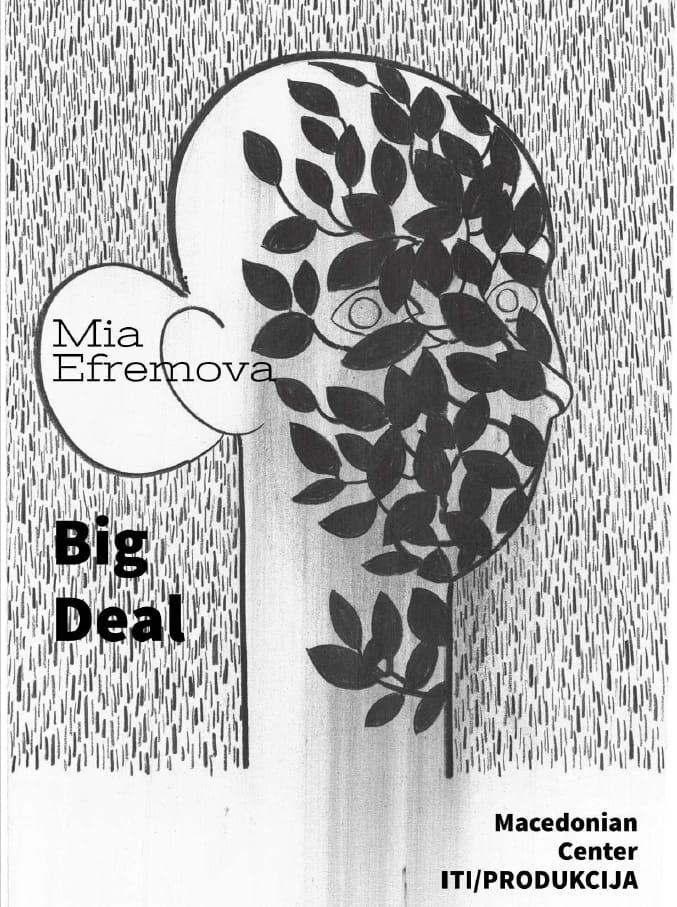

Book Cover for the Theatre Play Big Deal. Credits: ITI Macedonia.
IAB: What does your generation of theater workers face today home and abroad, in the challenge of fighting for and creating a project? What do you dislike, and what do you like and accept? What provokes you and what comforts you as artists-creators?
AS: There is a huge exodus of Hong Kong creatives and audiences to Taiwan, Canada, and the UK, so artists are still getting used to how we continue to search for our own identity. Making art is not easy anywhere in the world, we never have enough resources, sometimes not enough audience because of lack of resources in marketing and audience building, but we plow on because we still have many stories to tell, and we still want to care about the world and one another.
TK: Hong Kong’s fast-paced urban rhythm has nurtured high productivity among its creators. For instance, a professional playwright can produce an average of three to five works per year. However, this is not a healthy creative environment. Creators lack a supportive artistic community and sufficient time, and there is a significant shortage of follow-up discussions. As a result, creators must bear immense creative and life pressures alone, making it difficult to produce higher-quality artistic works.
I sense that Hong Kong creators are at a challenging yet fascinating point in history. Faced with political constraints and suppressed freedom of speech, the creative environment is fraught with difficulties, yet it has also sparked inspiration and new ways of thinking. We are adapting to these transformations and need more time to process the changes. At the same time, this moment presents an opportunity to solidify Hong Kong’s identity and values, vividly expressed through artistic works, showcasing our soul and uniqueness to the world.
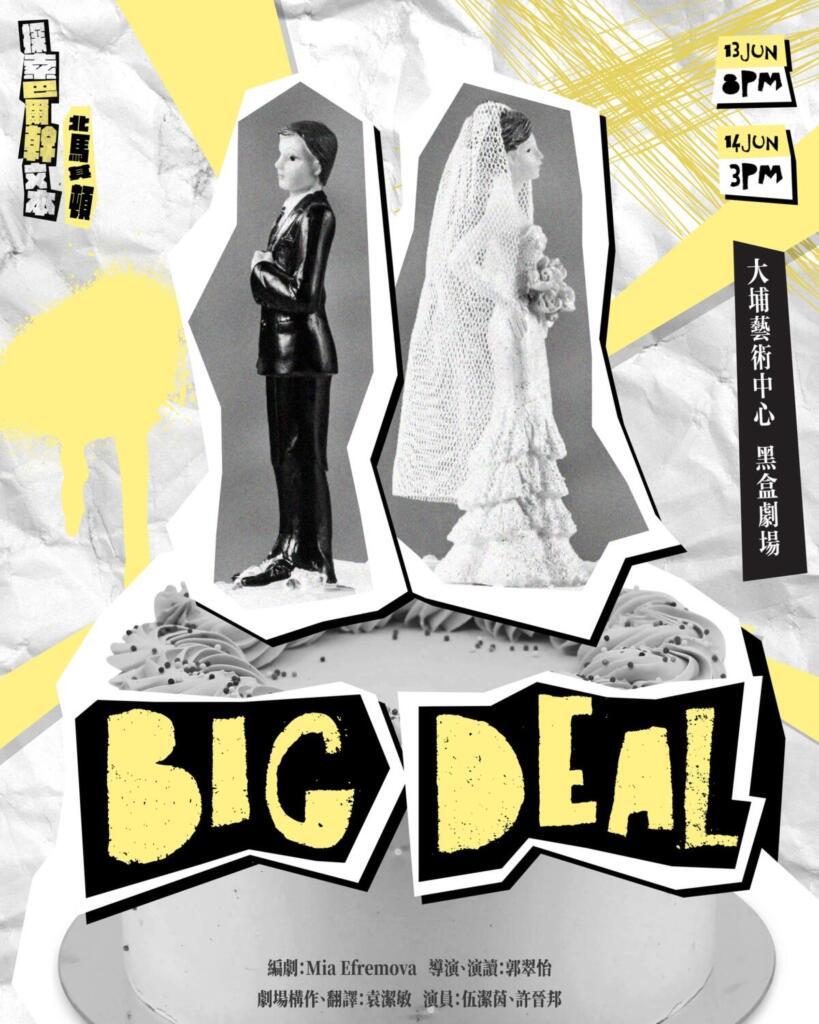

Big Deal in Hong Kong. Photo Credits: Blank Space Studio.
IAB: What does it mean and what is happening in and on the underground art scene in Hong Kong today?
TK: The government is tightening resources and space for artistic development. I believe the underground art scene will continue to grow, even as it faces increased crackdowns and surveillance.
IAB: Three, what does it mean for you to be a young woman director in contemporary post post-colonial Hong Kong?
TK: I grew up experiencing Hong Kong’s transition from the colonial era to its handover to China, while also witnessing the rise of feminism amid globalization. Constantly navigating my identity and values amidst the regression and progress of ideologies during this transition of eras, I hope to find some answers through my work and aspire to elevate the status and value of female artists in Hong Kong.
IAB: According to your directorial sensibility – what did you recognize and what attracted you the most in Mia’s text Big Deal? What delicacies, what fragilities in the narrative or anti-narrative and which characters with their rises and falls?
TK: What attracts me the most is Mia’s boldness and freedom. Her work is like an absurdist painting—over three hours, it immerses the audience in violent emotions, using a rich tapestry of colors, sounds, and imagery to convey the author’s inner turmoil, confusion, and despair. This is by no means an easily accessible or approachable piece, yet the author refuses to compromise, boldly illustrating her imagination. It made me reflect on the limitations and taboos I impose on my own creative process. What exactly is art? What is the relationship between art and the audience? And what does the creative process truly mean to the creator? These are the profound questions that Big Deal has left me contemplating.
IAB: Can you gain some insight into Balkan dramatic and existential issues, conditions, crises, or bright horizons through the morphology, the structure of Balkan plays?
AS: The creative teams (for all three plays) learnt a lot about conditions of the West Balkans through working on this project. They see this as a precious opportunity to learn something new and find resonance even with histories far, far away (geographically and chronologically). The team did extensive research on the historical and cultural background of the three countries to understand the context and significance of the play, and also delivered pre-show introductions to audiences to very briefly give some key concepts to make it easier to comprehend. It was also great that the teams managed to talk to the playwrights so we actually get to see the face behind these plays.
IAB: Are the political, economic, cultural, vital, collective, individual, gender, ecological problems… the same, similar, or completely different between the ex-British colonies in China and the ex-Yugoslav countries in the Balkans?
AS: It is in fact quite different in terms of cultural and political conditions, so we took some time to understand the contexts; so does the audience. Especially for Hong Kong, we are a very different place with unique systems and highly capitalistic mentalities blended into East Asian thinking of tradition and innovation, so even when we were an ex-colony, it also takes an additional layer of cultural translation to make this understandable.
TK: Personally, there are similarities, particularly regarding the issue of national identity. However, when comparing the creative environments of North Macedonia and Hong Kong, artists in Hong Kong are relatively more fortunate. Due to Hong Kong’s history as a former colony, a relatively effective system for developing artistic creation has been established, and we continue to benefit from this mechanism.
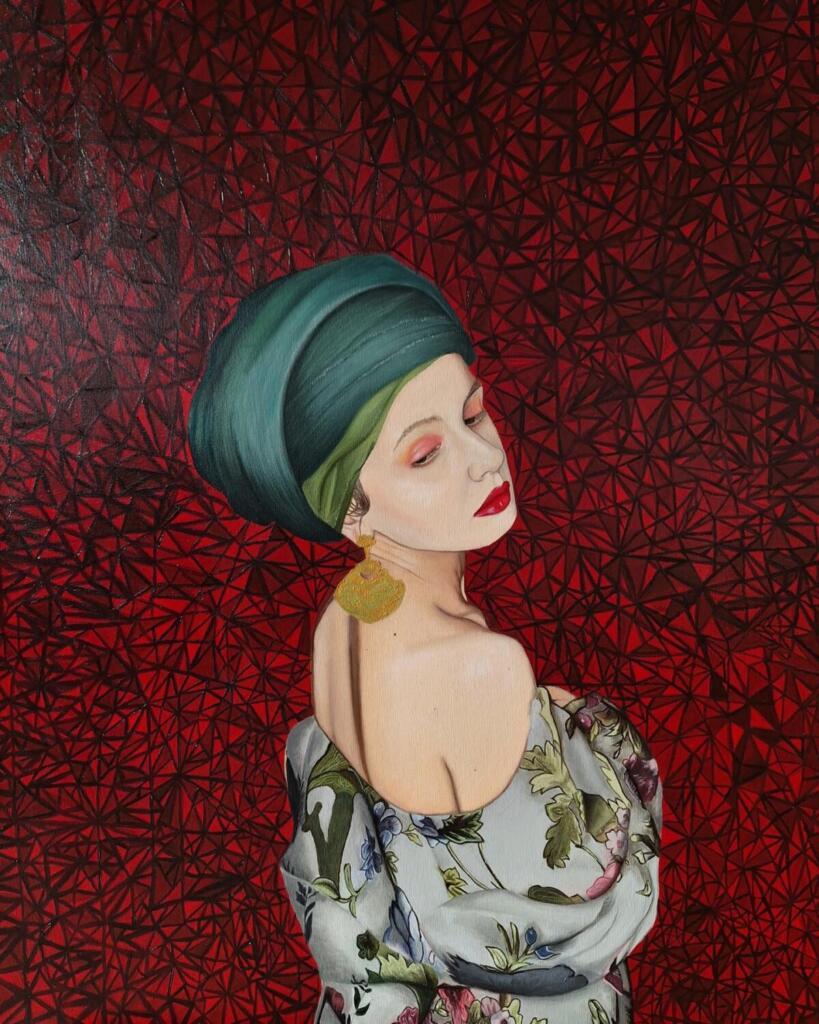

Mia Efremova. Painting, Selfportrait.
IAB: Mia, as a young playwright, did any theater company in Macedonia offer to stage your play Big Deal after it was published in Macedonia, publicly presented abroad and internationally recognized in festivals and artistic programs in Pristina, London, Tokyo, Hong Kong?
Mia Efremova: No, and I do not expect that they will. However, I have never had such expectations from North Macedonia, and I do not say this in a negative sense. Since writing my first play in 2010, I understood that if my work were ever published, staged, or publicly presented here, it would be an unexpected bonus. For this reason, I remain deeply grateful to Ivana, for supporting, publishing, and presenting my work for more than a decade. Her contribution has been integral to my journey as a playwright.
Between 2012 and 2014, several of my plays written in Macedonian were publicly read and staged in Skopje and Štip by alternative theaters. In 2014, we met in Bitola at the International Festival of Monodrama, where my short play Albert was publicly read in English. I vividly recall the audience’s reaction, and it was particularly striking that many who approached me afterward were not from the Balkans. This experience confirmed to me that my plays resonate across borders and carry emotions that can be understood by diverse audiences. In this sense, North Macedonia has often felt like a transit point—an “airport” for my work—rather than its final destination. Perhaps it is simply too challenging to translate and stage certain emotions locally, or perhaps there remains a reluctance to fully embrace the unfamiliar.
IAB: Mia, what is your opinion on the conditions in the contemporary theatrical system in Macedonia today? What are the positive aspects and what are the weaknesses?
ME: That is an interesting question. I must be brutally honest and recall the words of one of my closest friends, who is active in politics: “Why don’t you write what these people want to hear?” In that single sentence, everything is said about the current state of the contemporary theatrical system in North Macedonia.
Yes, there are excellent projects that deserve to be staged in every theater here. Unfortunately, our politically influenced system operates on different codes and priorities. This is a loss for the audiences, because they are unaware of what they are missing. On the positive side, there are individuals like Ivana, who make it possible for my work to gain recognition abroad and to build important international connections. Yet, the weaknesses remain: stagnation, indifference, and political interference — the very elements that hinder growth. I often wonder who will replace us in the future. There are talented young playwrights emerging, but just as importantly, the theater community will need a “young Ivana” as well — someone with the courage and vision to support and promote their voices.
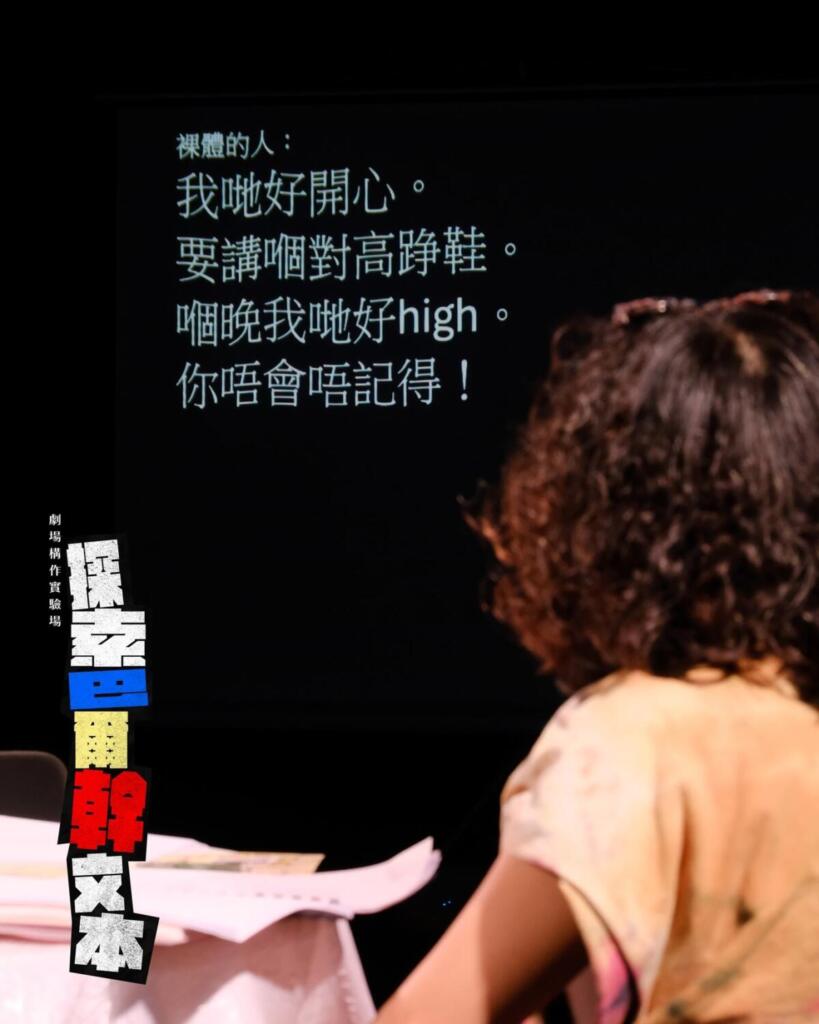

Big Deal in Hong Kong. Photo Credits: Blank Space Studio.
IAB: Mia, where is your place and what are your perspectives/prospects in such a local theatrical system?
ME: I cannot imagine ever stopping writing; I don’t believe that is possible. The only true constant is change, and we change with the world. For me, this means that my place is certainly not here — and that creates a serious challenge for self-expression, whether in writing or art in general. I can write technically, of course, but those plays lack emotion, authenticity, and an original voice. And it is always the audience who notices that first. In a way, this also speaks directly to my previous answer. For now, I will continue writing here, but not indefinitely. My mind is hungry, my heart is thirsty, and my soul cannot rest under an unbreathable sky. I have always felt a deep connection with, and influence from the Asian culture. In many ways, it seems that my writing belongs more to Asian countries than to my own. And yet, perhaps I am mistaken, because in the end, my words can be translated into the language of every human being.
IAB: Mia, after this international exchange and collaboration, what is your next theater project?
ME: Firstly, I would like to sincerely thank Ivana, for always being there to present me and my plays at times when I could not do so myself. For this particular project, I am also deeply grateful for the response from the Hong Kong audience, as well as for Amy and Tree’s contribution and their interest in Big Deal. I am truly looking forward to continuing to work on future projects with Hong Kong — perhaps even larger ones, in collaboration with Amy and Tree. Big Deal was also published as a printed book in Tokyo in 2023, and a second edition will be released this September. In October, a new play of mine will be published in Japan as well. In May, Tokyo — through Marissa, the publishing house, and the agents — formally greeted the Hong Kong audience on social media, which I also shared. This kind of collaboration is exactly what I seek to build for future projects, with staging always as the top priority.
My new play, titled Fire (Hi – 火事), has been translated from English into Japanese and will not only be published in hard copy, but also staged for the first time. At the same time, I am also eager to establish collaborations with theatres and festivals in the Balkans and across Europe, since my voice, after all, originates from here.
IAB: Thank you very much for the insights, dear Amy, dear Tree, and dear Mia.
London/Hong Kong/Štip/Skopje 2025
This post was written by the author in their personal capacity.The opinions expressed in this article are the author’s own and do not reflect the view of The Theatre Times, their staff or collaborators.
This post was written by Ivanka Apostolova Baskar.
The views expressed here belong to the author and do not necessarily reflect our views and opinions.




![17th Sep: Seventh Son (2014), 1hr 42m [PG-13] – Streaming Again (5.75/10)](https://occ-0-858-92.1.nflxso.net/dnm/api/v6/Qs00mKCpRvrkl3HZAN5KwEL1kpE/AAAABTd3AkkvfOAX-bQt5_gnJ6SQYk08WiJ-igsXfwn7ds_BzvrWsaX-usBZQI_cE71FgMTgXu-P28WkhXwgmqPPI_k97F22KfLld-yd.jpg?r=7cc)








